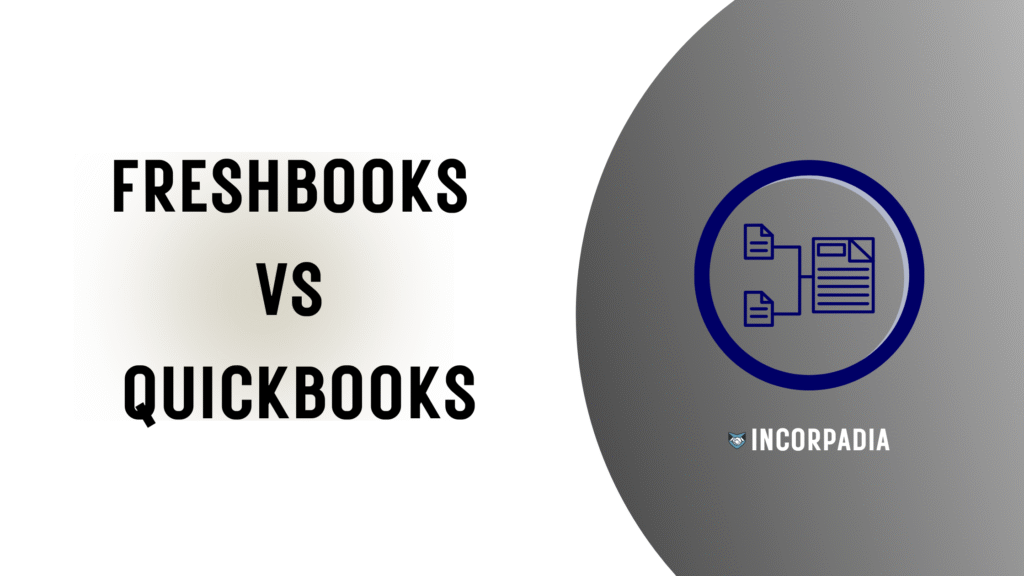Starting a business is an exciting venture, and one of the most popular ways to do so in Pennsylvania is by forming a Limited Liability Company (LLC). An LLC provides significant advantages, including personal liability protection, tax flexibility, and a simple structure that’s easier to manage than other business entities like corporations. Whether you’re a local entrepreneur or looking to expand your business in Pennsylvania, understanding how to properly form an LLC is crucial for long-term success.
The process of starting an LLC in Pennsylvania may seem overwhelming at first, but breaking it down into manageable steps can make it more approachable. From choosing a unique business name to filing the necessary documents with the state, there are several essential tasks to complete before your LLC can officially be recognized. In this guide, we’ll walk you through each step, from checking your desired LLC name for availability to registering for the necessary state taxes.
Forming an LLC in Pennsylvania is also an affordable and efficient process. With a relatively low filing fee and simple paperwork, it’s a popular choice for new business owners. Additionally, once your LLC is set up, there are a few important responsibilities to keep in mind, such as filing an annual report and staying compliant with state tax obligations.
In this comprehensive 2025 guide, we’ll not only cover the formation process but also give you insights into what you should do after your LLC is established to ensure ongoing compliance. From understanding annual reports to getting your business licenses, we’ll make sure you’re prepared for the next steps in your entrepreneurial journey. Whether you’re new to business formation or just need a refresher, this step-by-step guide will help you navigate the entire process of creating an LLC in Pennsylvania with ease.
Breakdown of The Costs
| Item | Cost (USD) | Notes |
|---|---|---|
| Certificate of Organization | $125 | One-time state filing fee |
| Registered Agent Service | $100–$300/year | Optional, but required by law |
| Operating Agreement | $0–$100 | Not mandatory, but recommended |
| Employer Identification Number (EIN) | $0 | Free if obtained directly from the IRS |
| Fictitious Name Registration | $70 | Required if operating under a name different from the LLC’s official name |
| Annual Report | $7 | Due annually by September 30th |
| Annual Registration Fee | $0–$700 | Applicable only to certain professional LLCs; varies based on the number of licensed members and their residency status |
Here Are the Steps to Forming an LLC in Pennsylvania
Starting an LLC in Pennsylvania is a relatively straightforward process. Below are the seven critical steps to help you successfully form your LLC in the state.
1. Search Your LLC Name
Before you can start your LLC in Pennsylvania, the first thing you need to do is select a name for your business. The name you choose is not just important for branding purposes but is also a legal requirement that you must follow.
Name Requirements
Your LLC name must:
- Be distinguishable from other businesses: The name must be unique and cannot be the same as or too similar to the names of other businesses already registered in Pennsylvania.
- Contain “LLC” or “Limited Liability Company”: This indicates that your business is an LLC and offers limited liability protection to its owners. Some common variations include “LLC,” “L.L.C.,” or “Limited Liability Company.”
- Avoid restricted words: Certain words may be prohibited or require additional documentation (such as “bank,” “insurance,” or “trust”). Make sure your name does not mislead people into thinking your LLC is associated with a government agency.
Check Name Availability
To verify that your LLC name is available, you must search the Pennsylvania Department of State’s business entity database. This can be done online, and it’s a simple process to check if someone else is already using the name you want. If the name is already in use, you’ll have to think of another one.
In addition, it’s advisable to check for domain name availability for your website and consider securing your social media handles at this stage to maintain consistency across your branding.
2. Choose a Registered Agent
A registered agent acts as a liaison between your business and the state of Pennsylvania. They receive all legal documents, such as notices of lawsuits, government correspondence, and tax documents, on behalf of your LLC.
In Pennsylvania, every LLC must designate a registered agent when filing its Certificate of Organization. You can choose:
- Yourself: If you have a physical address in Pennsylvania and are available during business hours.
- A Friend or Family Member: This person must have a physical address in Pennsylvania and be available to receive documents during regular business hours.
- A Professional Registered Agent Service: Many business owners opt for a professional service to ensure they don’t miss important legal notifications. This is particularly useful for those who are not located in Pennsylvania or those who want more privacy.
Choosing a professional registered agent service offers several advantages, such as:
- Privacy: Your registered agent’s address, not yours, will be listed in the public records.
- Reliability: A professional service is available during business hours to receive and forward your legal documents.
- Compliance: Professional registered agents ensure that your business stays compliant with state regulations.
Some top-tier services that are highly recommended for Pennsylvania LLCs include Northwest Registered Agent, which is known for offering excellent customer service and reliable, quick response times.
3. File the Certificate of Organization
After choosing your name and registered agent, the next step is to officially file your LLC with the Pennsylvania Department of State. This step involves submitting the Certificate of Organization (also known as Form DSCB:15-8821).
How to File the Certificate of Organization
- Online: Filing online is the fastest option. You can submit your application through the Pennsylvania Department of State’s online portal.
- By Mail: If you prefer filing by mail, you can send the completed form and filing fee to the Pennsylvania Department of State.
Filing Fee
The filing fee for the Certificate of Organization in Pennsylvania is $125. This is the only fee associated with forming the LLC, aside from any additional costs for business licenses or permits you may need.
Processing Time
Once your Certificate of Organization is filed, it will generally be processed within 5 to 7 business days if submitted online. If you file by mail, expect a longer processing time, usually up to 3 weeks.
4. Create an Operating Agreement
While Pennsylvania does not require LLCs to have an operating agreement, it is highly recommended to create one. An Operating Agreement is an internal document that outlines how your LLC will be managed, the rights and duties of each member, and other critical aspects of the business. It helps prevent misunderstandings or disputes between business owners by setting clear expectations and responsibilities.
Here are the main components typically covered in an Operating Agreement:
- Ownership Structure: Specifies each member’s ownership percentage.
- Management Structure: Details whether the LLC is managed by its members or by appointed managers.
- Profit and Loss Allocation: Describes how profits and losses will be distributed among the LLC members.
- Member Duties and Responsibilities: Lists the obligations of each member, such as financial contributions and daily responsibilities.
In case of a dispute or legal issue, an Operating Agreement can provide clarity on how to resolve the situation.
5. Obtain an EIN from the IRS
Once your LLC is officially formed, the next step is to apply for an Employer Identification Number (EIN), also known as a Federal Tax Identification Number. An EIN is necessary for a variety of reasons, including:
- Filing your federal taxes.
- Opening a business bank account.
- Hiring employees.
You can obtain an EIN from the Internal Revenue Service (IRS) for free. The easiest way to apply is through the IRS website, where you can complete the application in minutes.
6. Register for State Taxes
After obtaining your EIN, the next step is to register for any state taxes that apply to your business. Pennsylvania imposes several business taxes, including:
- Sales and Use Tax: If you sell physical goods or taxable services in Pennsylvania, you’ll need to register for sales tax. This can be done online through the Pennsylvania Department of Revenue.
- Employer Withholding Tax: If you have employees, you must withhold state income taxes from their wages. You’ll need to register for an employer withholding account.
- Unemployment Compensation Tax: If you hire employees, you may need to register for unemployment compensation tax.
These taxes must be filed regularly, so it’s important to understand your obligations and stay compliant.
7. Obtain Business Licenses and Permits
Depending on the nature of your business and your location in Pennsylvania, you may need to obtain certain business licenses or permits. This could include:
- Local Business Licenses: Some cities and counties require local business licenses for all businesses, including home-based businesses.
- Industry-Specific Permits: Certain industries, such as construction or food service, require specific permits or licenses.
To determine which licenses you need, you’ll want to check with local government agencies, state departments, and industry associations.
What Do I Do After My LLC Is Approved?
After your LLC is officially formed, there are a few ongoing requirements you must adhere to in order to maintain your LLC’s good standing with the state of Pennsylvania.
Annual Report
Starting in 2025, Pennsylvania requires all LLCs to file an Annual Report to maintain their status as a registered business entity in the state.
Annual Report Fee
The Annual Report filing fee is relatively inexpensive, costing only $7.
When Is the Annual Report Due?
The Annual Report is due by September 30th each year. It’s crucial to file your report on time, as failure to do so can result in administrative dissolution of your LLC.
Filing Method
You can file your Annual Report online through the Pennsylvania Department of State’s online portal. Be sure to double-check your business information and update anything that has changed since the previous filing.
Taxes
LLCs in Pennsylvania are generally treated as pass-through entities for tax purposes. This means that the LLC itself is not taxed on its profits. Instead, profits and losses “pass through” to the individual members, who report them on their personal tax returns. However, if your LLC elects to be taxed as an S-Corp or C-Corp, different tax rules apply.
Conclusion
Starting an LLC in Pennsylvania in 2025 is a straightforward process that offers many advantages for entrepreneurs. By following the steps outlined in this guide, you can ensure that your LLC is formed properly and remains compliant with the state’s ongoing requirements. From naming your business to filing your Annual Report, staying organized and timely will set your business up for success in the years to come.
If you’re ready to get started, follow each step carefully, and don’t hesitate to consult with a professional if you have any questions along the way.







